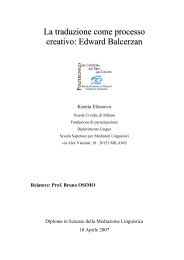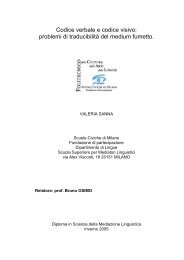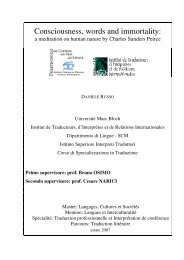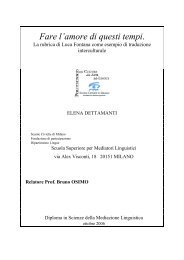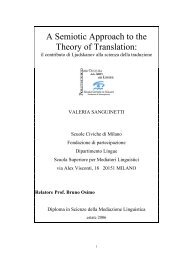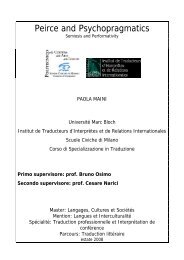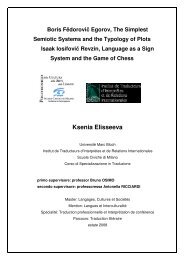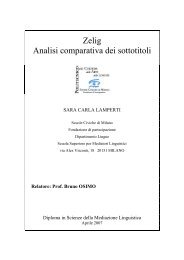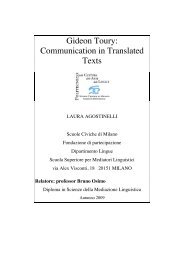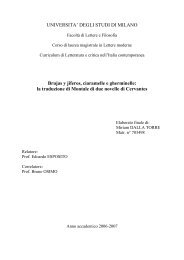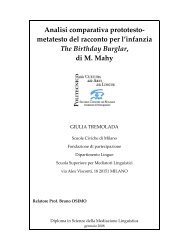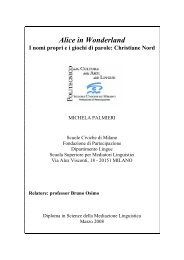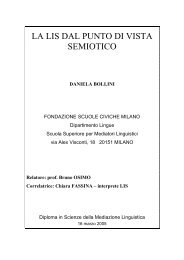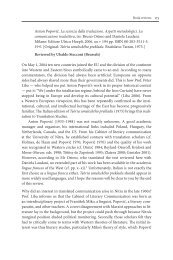Relatore: Professor Bruno OSIMO - Bruno Osimo, traduzioni ...
Relatore: Professor Bruno OSIMO - Bruno Osimo, traduzioni ...
Relatore: Professor Bruno OSIMO - Bruno Osimo, traduzioni ...
Create successful ePaper yourself
Turn your PDF publications into a flip-book with our unique Google optimized e-Paper software.
which may, in turn, reflect different self-images. Lucy may have wished to give<br />
the impression of a highly efficient translator who knows hoe to solve<br />
problems quickly whereas Fran may have aimed at an impression of a<br />
conscientious and meticulous translator by behaving in a potentially over-<br />
conscientious fashion in the experiment. Obviously there is also the possibility<br />
that in an experimental situation subjects may to some extent manipulate<br />
(probably unconsciously) their behaviour to please the researcher. Thus Lucy<br />
may have behaved with exaggerated ease in the experiment, at the expense of<br />
translation quality, while Fran may have overdone her ‘meticulous translator<br />
act’. If this is true, it is particularly interesting that Lucy and Fran should have<br />
manipulated their behaviour into opposite directions with regard to the<br />
demands of quantity vs. quality in translation. This seems to reveal a<br />
difference in their (implicit) definitions of a ‘good translator’, as it seems<br />
unlikely that they would have wanted to give an example of a ‘bad translator’<br />
in the experiment.<br />
The observations discussed in this section highlight the complexity of<br />
investigating translation process, or of any type of human behaviour for that<br />
matter. I would like to stress that it is not the purpose of the present study to<br />
discredit any of the professional translators who took part in the experiment;<br />
the success or failure in the experimental task may have little to do with how<br />
they succeed in their own work. However these observations seem to support<br />
the hypothesis that professional translators may behave differently when<br />
performing routine vs. non-routine tasks. In fact, one of the most plausible<br />
explanations for the unexpectedly poor success of the two professional<br />
translators, Penny and Lucy, is that they applied a routine approach to a non-<br />
routine task. The consequences were less dramatic for Penny, for whom the<br />
topic of the ST represented a familiar special field.<br />
64



